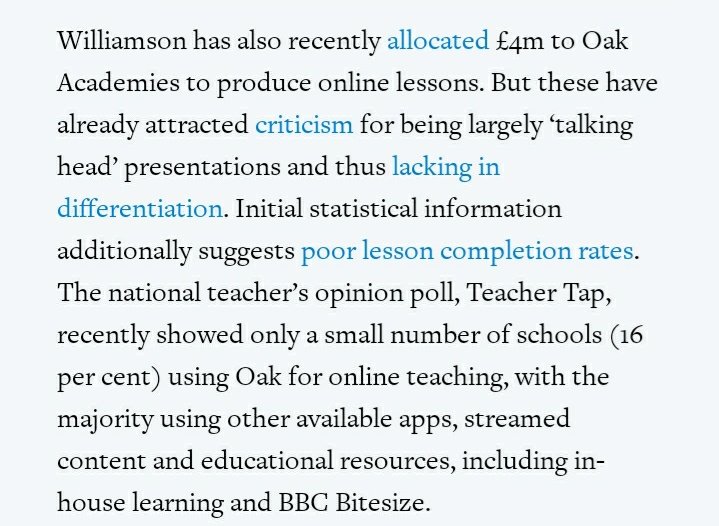
Ok here's the NERDY THREAD on interleaving and blocking!
When I was doing research for the @cogscisci FREE module on "how to write practice for your students" I uncovered some really cool findings, but also some mysterious ones. Read on for nerfery! 1/
When I was doing research for the @cogscisci FREE module on "how to write practice for your students" I uncovered some really cool findings, but also some mysterious ones. Read on for nerfery! 1/
https://twitter.com/adamboxer1/status/1318834825910996992
So first, we know that "overlearning" leads to positive learning gains. This is where you just do a monster amount (a shed load?) of practice on a specific skill. 2/
We also know that "interleaving", which is where you mix different skills (or knowledge areas) together, you also get positive learning gains. 3/
These two are sort of in opposition to each other, especially bearing in mind the interleaving studies all compare to "blocking", which is where you do lots of practice on one skill, which sounds a lot like overlearning. 4/
As a classroom teacher as well, I know there is an art to interleaving: if you move students on from a particular skill too early, they don't embed it properly and then when you come back to it they're like YOU NEVER TAUGHT US THIS SIR
5/
5/
There's something else that's a bit mysterious, which is that we don't know why interleaving works. There are two plausible mechanisms in the literature 6/
First, it's basically just fancy "spacing." Spacing is where you spread practice over time. If you are teaching topic A, and you break up A like this ABA, if B is nothing more than time, you get learning gains. So too if B is some other area of content you are teaching.
7/
7/
Second theory, it is about discriminating between and comparing topics. So if B is completely unrelated to A, you don't get as good a learning gain as you would compared to if it was a similar topic. 8/
https://twitter.com/adamboxer1/status/1085851891429490688?s=20
(The paper that Willingham links to here supports the second theory of interleaving, but I haven't looked at it in depth)
So I emailed Professor Doug Rohrer to ask him about all this (he's the interleaving maestro) and he was basically like "we don't know what the right thing to do in a classroom yet is." Essentially, the research hasn't caught up with what teachers are trying out day in day out 9/
I think that's pretty cool tbh, and the ground would be ripe for a researcher-teacher RCT collaboration type thing like was published in Impact recently (see longer here onlinelibrary.wiley.com/doi/abs/10.111…) 10/
He agreed with me that a good rule of thumb is to *start* with blocking, and then move on to interleaving at the point when the teacher thinks blocking has served its purpose, and that interleaving should be similar content. So AAAABABCABCDA would work. 11/
Anyway, hope you enjoyed that. All references and more reading and FREE CPD here cogscisci.wordpress.com/modules/ /end
• • •
Missing some Tweet in this thread? You can try to
force a refresh











